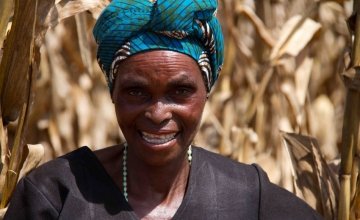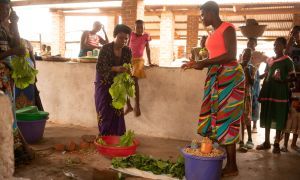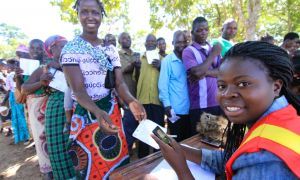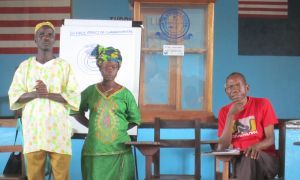
Read our 2023 annual report

Knowledge Hub
Malawian women and girls - Changing their lives
This booklet was published to commemorate a Gallery Exhibition created in November 2014 to celebrate the work being done by members of the Irish Consortium on Gender Based Violence in Malawi to counteract the effects of gender-based violence.

Gender-based violence in Malawi
Gender-based violence is a human rights violation and a serious obstacle to sustainable development. Around the world, 1 in 3 women have experienced physical or sexual violence, mostly by an intimate partner. In Malawi, 55% of women report being raped or coerced into sex. Many girls drop out of school as a result of forced marriages: it is estimated that 28% of Malawian girls aged 15–19 are married.
Wider impact
While gender-based violence is directed in the first instance at women and girls, its consequences ripple outwards affecting all levels of society including family, community and nation state. At an individual level, survivors can face long-term physical, sexual, reproductive, emotional, psychological and economic impacts. At a family level, gender-based violence can have psychological, emotional and health consequences which can result in the breakdown of the family unit, and lead to the isolation and stigmatisation of women and children, and increasing poverty.
At a community level, the impacts can result in high levels of fear, stigmatisation and the loss of productive members of community, all creating an increased vulnerability and decreased resilience. Finally at the level of the nation state, the impacts are felt across, economic, political, and legislative spheres.
Exhibition
This Gallery Exhibition was created to commemorate the visit of Irish President Michael D. Higgins to Malawi in November 2014, and later to coincide with the launch of the 16 Days of Activism against GBV on 25 November, 2014.
The photos and case studies exemplified in the exhibition offer a glimpse of some of the gender work of five Irish organisations working in Malawi: Concern Worldwide, Goal, Trócaire, Gorta Self Help Africa and Action Aid. All five organisations are members of the Irish Consortium on Gender Based Violence.
The ideas, opinions and comments herein are entirely the responsibility of the author(s) and do not necessarily represent or reflect Irish Aid policy.




